
Baining Guo, Microsoft Research Asia
Baining Guo is a Distinguished Scientist with Microsoft Research. Prior to joining Microsoft in 1999, Baining was a senior staff researcher with Intel Research in Santa Clara, California. Baining received his PhD and MS degrees from Cornell University, and his BS from Peking University. He is a fellow of ACM, IEEE, and Canadian Academy of Engineering.
Baining works in computer graphics, geometric modeling, virtual reality, and computer vision. His research focuses on three areas: DNN models for 3D graphics and imaging, statistical modeling of textures and appearances, and geometric modeling. His work is motivated by applications in the fields of virtual reality, video communication, digital content creation, and video gaming. He was a keynote speaker in many graphics and visual computing conferences, including ACM/SIAM Solid and Physical Modeling (SPM), IEEE Shape Modeling International (SMI), IEEE Virtual Reality (IEEE-VR), IEEE Multimedia and Expo (ICME), IEEE Visual Communication and Image Processing (VCIP), Pacific Graphics (PG), Computer Animation and Social Agents (CASA), and IEEE ICASSP.
He served on program committees of most major graphics conferences, including ACM SIGGRAPH, ACM SIGGRAPH Asia, and IEEE Visualization. He was a member of ACM Siggraph Papers Advisory Group (2013-2015). He was the technical papers program chair of ACM SIGGRAPH Asia in 2014. He also served on the editorial boards of IEEE Transactions on Visualization and Computer Graphics, IEEE Computer Graphics and Applications, and Elsevier Journal of Computer and Graphics.
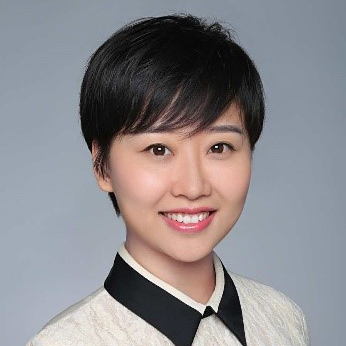
Beibei Shi, Microsoft Research Asia
Beibei Shi is senior research program manager at Microsoft Research Asia, taking the responsibility of MSR Asia Open Collaborative Research Program and StarTrack Program, as well as university relations between MSR Asia and universities in Central China, South China, China Hongkong and Taiwan. Besides, she takes the responsibility of the strategic cooperation between Microsoft Research Asia and the Ministry of Education of the People’s Republic of China. She focuses on the research theme of Resilience and Trust, has successfully led several open collaborative research sub-themes establishment with related MSR Asia research team, such as AIER Platform, OpenNetLab, Computing for Carbon Negative and Responsible AI.
Before joined MSR Asia, she joined IBM Research China Institute as a researcher in the cross field of environment and computer, after earned master’s degree in environmental science school of China Agricultural University in 2019. Then, she joined the University Partnership Department of IBM China as a program manager. During that period, she participated to design and led to execute industry-academic cooperative research program “green horizon plan,” making very solid contribution to technology innovation of air pollution control.

Chenda Li, Shanghai Jiao Tong University (opens in new tab)
Research Assistant Professor, Auditory Cognition and Computational Acoustics Laboratory, Shanghai Jiao Tong University.
Chenda received his Ph.D. (September 2024) and M.S. (June 2020) from the Department of Computer Science and Engineering at Shanghai Jiao Tong University (SJTU), and his Bachelor of Engineering degree (June 2018) from Huazhong University of Science and Technology (HUST). His current research interests include speech enhancement/separation, universal sound separation, multimodal information processing, and large speech-language models. He is selected for the 2025 Microsoft Research Asia StarTrack Program. He is also a recipient of the SJTU Explore X Fund and the Huawei Spark Award. He was awarded the Tencent AI Lab Rhino-Bird Focused Research Program. He is the primary developer and long-term maintainer of ESPnet-SE, an open-source toolkit for speech enhancement and separation. Widely adopted in academia, ESPnet-SE won the 1st place in the ICASSP L3DAS Speech Enhancement Challenge. He also received the Microsoft Research Asia Fellowship Nomination Award and the Best Oral Presentation Award at NCMMSC 2021. He actively serves as a reviewer for leading speech journals (T-ASLP, Speech Communication) and conferences (ICASSP, Interspeech, AAAI). He has published more than 30 papers, include 11 first author papers in at top-tier speech conferences and journals.

Chong Luo, Microsoft Research Asia
Dr. Chong Luo joined Microsoft Research Asia in 2003 and is now a Principal Research Manager at the Visual Computing Group. She is an adjunct professor and a Ph.D. advisor at the University of Science and Technology of China (USTC), China. Dr. Luo earned her Ph.D. in Electrical Engineering from Shanghai Jiao Tong University in 2012, her M.Sc. in Computer Science from the National University of Singapore (NUS) in 2002, and her B.Sc. in Computer Science from Fudan University in 2000.
Her research focuses on computer vision and intelligent multimedia systems, with particular interests in visual representation learning, multi-modality models, and video synthesis. Dr. Luo is on the editorial board for IEEE Transactions on Multimedia and currently serves as an area chair for CVPR, NeurIPS, and ACM Multimedia. Her contributions have been recognized with the ICLR 2023 Outstanding Paper Award.
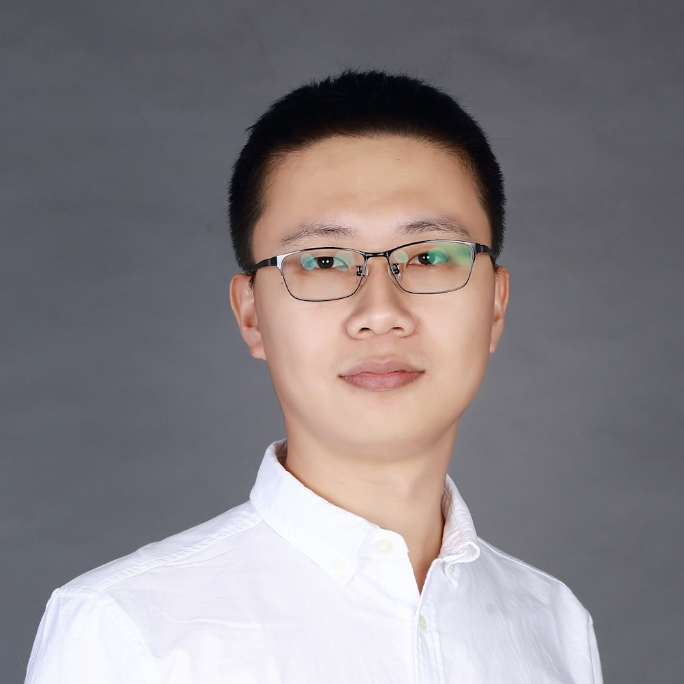
Di Hu, Renmin University of China (opens in new tab)
Di Hu, tenure-track associate professor at Gaoling School of Artificial Intelligence, Renmin University of China. His research interests include multimodal perception, interaction and learning. He has published more than 60 peer-reviewed top conference and journal papers, including T-PAMI, NeurIPS, CVPR, ICCV, ECCV etc. His representative works includes Balanced Multimodal Learning, Tactile Perception Model-AnyTouch, Audiovisual Unified Model-Crab, etc. He is the recipient of the Outstanding Doctoral Dissertation Award by the Chinese Association for Artificial Intelligence and WuWenJun AI Excellent Young Scientist Award. He is sponsored by the Young Elite Scientists Sponsorship Program by CAST.

Fan Yang, Microsoft Research Asia
Dr. Fan Yang is a systems researcher and research manager of the Systems Research Group at Microsoft Research Asia (MSR-Asia). He received his B.S. and Ph.D. degrees in computer science from Nanjing University. He joined MSR-Asia after completing his doctoral studies. Dr. Yang’s research focuses on computer systems, particularly those supporting machine learning-based intelligent tasks. He is the architect of machine learning systems OpenPAI, NNFusion, and NNI, used in Microsoft products like Bing and Azure and widely adopted as open-source projects. Previously, Dr. Yang co-developed graph systems like GraM, setting new records for trillion-scale graph analytics, and contributed to SCOPE, Microsoft’s big data engine. His work on the SCOPE-based analytic pipeline for Bing Ads improved processing capacity by over 50%, generating significant additional revenue.

Guanhua Chen, Southern University of Science and Technology (opens in new tab)
CHEN Guanhua is a tenure-track assistant professor from Department of Statistics and Data Science in Southern University of Science and Technology. He received his B.E. degree and M.S. degree from Department of Electrical Engineering in Tsinghua University and Ph.D. degree from Department of Computer Science in The University of Hong Kong. His research interests are LLM data synthesis and complex reasoning in low-resource settings. He has published about 20 papers as first-author or corresponding author in CCF A/B NLP conferences like NeurIPS/ACL/EMNLP/NAACL. He has received several research funds from the Youth Program of National Natural Science Foundation and General Program of Natural Science Foundation of Guangdong Province.
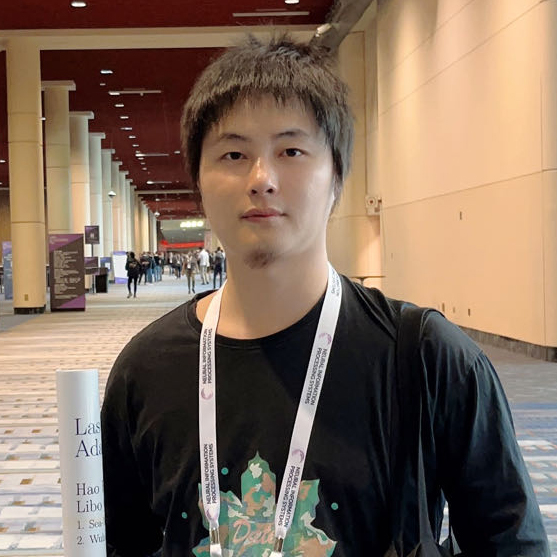
Hao Fei, National University of Singapore (opens in new tab)
Hao Fei is a Senior Research Fellow at the School of Computing, National University of Singapore (NUS), working closely with Prof. Chua Tat-Seng (Fellows of the Singapore National Academy of Science) and Prof. Yan Shuicheng (Fellows of the Academy of Engineering Singapore). His research focuses on vision-language understanding and generation, multimodal large language models (MLLMs), and natural language processing (NLP). Over the past few years, he has published more than 50 first-/corresponding-author papers in top-tier venues such as IEEE TPAMI, IEEE TKDE, ACM TOIS, AI, ICML, NeurIPS, CVPR, ACL, AAAI, and SIGIR. His work has received over 6,400 citations with an H-index of 47. He has received multiple accolades including the Outstanding PhD Dissertation Award from CIPSC (2022), the WAIC Yunfan Rising Star Award (2023), WAIC Excellent Young Paper Award (2024), and inclusion in the 2024 Elsevier-Stanford World’s Top 2% Scientists list. His work has earned Best Paper recognitions at ACL, ACM MM workshops, and includes multiple ESI Highly Cited Papers, both named among the top 10 most influential papers at AAAI 2022 and ICML 2024, respectively. His representative contributions include NExT-GPT (the first any-to-any unified multimodal LLM), Vitron (the first unified pixel-level vision-language model for generation, segmentation, and editing), and the Generalist Benchmark (a 5-level evaluation framework for generalist multimodal agents). His MLLM tutorial series is one of the most widely used resources in the community. He has received research funding from CCF-Baidu Pinecone, CCF-Kuaishou, and AISG, serving as PI or co-PI. He has led teams to championship in top AI challenges (e.g., ACM MM 2024 DEMON, ICME 2025 Inova). He frequently serves as an Area Chair or Senior PC Member for top conferences such as ACL, EMNLP, CVPR, ICML, NeurIPS, AAAI, IJCAI, and ACM MM, and now as Associate Editor of ACM TALLIP and Neurocomputing. He has organized over 20 international workshops, tutorials, and shared tasks.
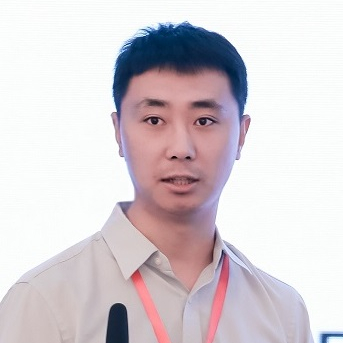
Jiaolong Yang, Microsoft Research Asia
Jiaolong YANG is a Principal Researcher and Research Manager at the Microsoft Research Asia (MSRA). He specializes in 3D Computer Vision, with research interests that include 3D reconstruction and generative modeling, digital human and AI avatars, and real-time immersive 3D communication. Lately, he is also interested in Embodied AI, delving into the development of foundational action models that are poised to revolutionize robotics with advanced 3D perception. He regularly serves as a program committee member and reviewer for major computer vision conferences and journals, including CVPR, ICCV, ECCV, TPAMI, and IJCV. He also holds the position of Area Chair for CVPR, ICCV, ECCV, WACV, etc.
Before joining MSRA in September 2016, Jiaolong earned dual PhD degrees from The Australian National University (ANU) and Beijing Institute of Technology (BIT) in 2016. He was a research intern at MSRA from November 2015 to March 2016, and a visiting graduate researcher at Harvard University from July 2016 to August 2016. He received the Excellent PhD Thesis Award from China Society of Image and Graphics (CSIG) in 2017, an honor bestowed upon only four recipients in China. He also recieved the Best Paper Award at IEEE VR 2022.
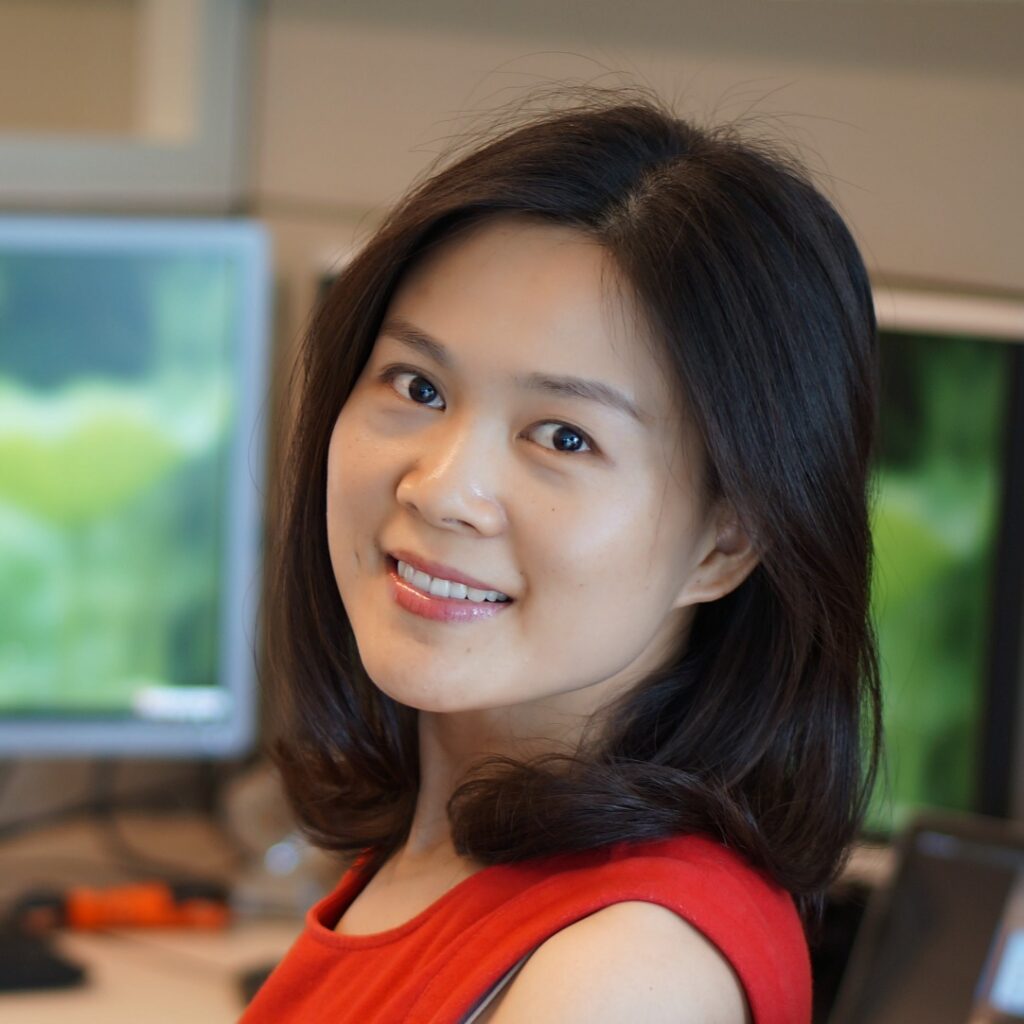
Lily Sun, Microsoft Research Asia
Lily Sun (孙丽君) is Director of the Microsoft Research Asia (MSRA) Accelerator Team (previously Outreach Team), where she oversees academic engagement in mainland China, Hong Kong, and Singapore, while driving key accelerator programs, collaborations, and global research collaborative initiatives for MSR Asia. With over a decade of experience at MSRA, Lily has made significant contributions by building high-impact talent cultivation programs, accelerating research partnerships, and amplifying its research leadership and thought leadership across the region.
Lily and her team are responsible for crafting and executing strategies that attract, develop, and retain diverse, high-quality talent for MSR Asia. Their efforts include flagship programs such as the Stars of Tomorrow Internship, StarTrack Young Visiting Scholars Program, Joint PhD Program, StarLeap Program, StarBridge Program, and PhD forums. They also lead research acceleration across themes like the MSR Asia Theory Center, AI for Education, AI for Cultural Heritage, Societal AI, AI for Sustainability, and AI for Healthcare, promoting cross-disciplinary and cross-boundary innovation.
As a passionate advocate for diversity and inclusion, Lily founded the Microsoft Ada Workshops in 2016, fostering collaboration between academia and industry to empower the next generation of female tech talent. She serves as an executive member of the Women Branch of the China Computer Federation and co-chair of the Women at Microsoft Greater China Region.
Lily holds an M.S. in Engineering and a B.S. in Science from Peking University.

Li Zhang, Microsoft Research Asia
I am currently a senior researcher at Systems and Networking Groups of Microsoft Research Aisa (opens in new tab). I received my Ph.D. degree from the University of Science and Technology of China (opens in new tab) (USTC) in 2018. Before that, I received my B.S. degree from USTC in 2013. My research interests lie broadly in AI algorithms. After I joined MSRA, my research focused on inventing novel algorithms for improving AI inference efficiency, which include: (1) compression for pre-trained transformer models and LLMs, and (2) hardware-aware NAS for edge AI.
These days, I have been deeply interested in exploring and addressing the cutting-edge research problems in LLMs and AGI. A list of topics I’m actively working on and thinking about:
- Long-context LLM
- LLM self-play

Luo Mai, University of Edinburgh (opens in new tab)
Luo Mai is a Lecturer in Data-Centric Systems in the School of Informatics at the University of Edinburgh. He also maintains an honorary affiliation with the department of computing at Imperial College London. Prior, he is a research associate at Imperial College London and a visiting researcher at Microsoft. Luo received his PhD from Imperial College London in 2018. He is the recipient of a prestigious Google PhD fellowship.
Luo’s research interests are at the intersection between distributed systems, machine learning and data management. He has received the Alibaba Innovative Research Award in 2020, Microsoft Azure Research Award in 2018, and Best Open-Source Software Award from ACM Multimedia in 2017
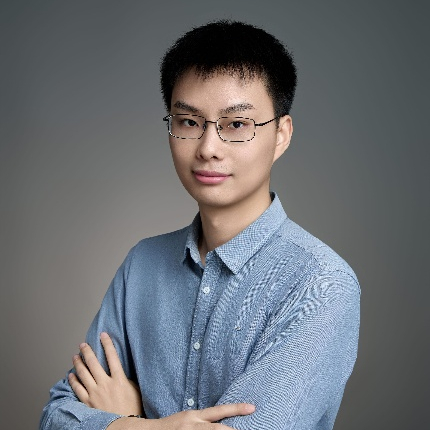
Minhui Xie, Renmin University of China (opens in new tab)
Minhui Xie is an assistant professor (lecturer) in the Department of Computer Science at Renmin University of China, and a recipient of the Yuzhang Wu Young Talent. He received Ph.D. in Computer Science from Tsinghua University in 2024, where he was advised by Professors Youyou Lu and Jiwu Shu. He obtained his bachelor’s degree in Computer Science from Nanjing University in 2019. His research interests lie in machine learning system and storage system, with a focus on building high-performance storage foundations for the next generation of AI (Storage for AI) to meet new storage demands across the AI lifecycle in terms of scalability, cost efficiency, and fault tolerance. He has published over ten papers in top-tier conferences such as SC, EuroSys, USENIX ATC, ASPLOS, SIGMOD, and VLDB. He also serves as a reviewer for various international conferences and journals.

Pengshuai Wang, Peking University (opens in new tab)
Pengshuai Wang is currently an Assistant Professor at Peking University. His research interests include computer graphics, geometry processing, and 3D deep learning. He has published multiple papers at top-tier international conferences such as SIGGRAPH (Asia) and CVPR. His work on octree-based 3D convolutional neural networks (O-CNN) was among the top five most cited papers published in SIGGRAPH (Asia) and ACM Transactions on Graphics (TOG) from 2017 to 2022. He currently serves as an associate editor of the graphics journal Computers & Graphics and as a program committee member for several major international graphics conferences, including SIGGRAPH Asia, Eurographics, SGP, and CVM. He received the Asiagraphics Young Researcher Award in 2023 and the China3DV Excellent Young Researcher Award in 2025.

Xing Xie, Microsoft Research Asia
Dr. Xing Xie is a Partner Research Manager at Microsoft Research Asia. He received his B.S. and Ph.D. degrees in Computer Science from the University of Science and Technology of China in 1996 and 2001, respectively. Since joining Microsoft Research Asia in July 2001, Dr. Xie has led research in data mining, social computing, and responsible artificial intelligence. His contributions have been widely recognized with numerous prestigious awards, including the IEEE MDM 2023 Test-of-Time Award, ACM SIGKDD 2022 Test-of-Time Award, ACM SIGKDD China 2021 Test-of-Time Award, ACM SIGSPATIAL 2020 10-Year Impact Award (Honorable Mention), and ACM SIGSPATIAL 2019 10-Year Impact Award. Dr. Xie has been invited to deliver keynote speeches at several major conferences, such as DASFAA 2025, MDM 2019, ASONAM 2017, and W2GIS 2011. He currently serves on the editorial boards of ACM Transactions on Social Computing, ACM Transactions on Intelligent Systems and Technology, and CCF Transactions on Pervasive Computing and Interaction. He has also served as Program Co-Chair for a number of top-tier conferences, including ACM UbiComp 2011, PCC 2012, IEEE UIC 2015, SMP 2017, ACM SIGSPATIAL 2021 and 2022, IEEE MDM 2022, and PAKDD 2024. Dr. Xie is a Fellow of the ACM, IEEE, and China Computer Federation.

Tong Zhang, University of Chinese Academy of Sciences (opens in new tab)
Tong Zhang received the B.S. degree from Beihang University, Beijing, China, in 2011, and the M.S. degree from New York University, New York, NY, USA, in 2014. He obtained the Ph.D. degree from the Australian National University, Canberra, Australia, in 2020. From 2020 to 2024, he was a postdoctoral researcher at the École Polytechnique Fédérale de Lausanne (EPFL), Switzerland. He is currently a tenure-track Assistant Professor at the University of Chinese Academy of Sciences (UCAS). He received the Best Student Paper Honorable Mention at ACCV 2016 and was nominated for the Best Paper Award at CVPR 2020. His research interests include representation learning and 3D vision.

Yihao Chen, Tsinghua University (opens in new tab)
Dr. Yihao Chen is the Associate Professor at the School of Aerospace Engineering and the National Key Laboratory of Flexible Electronics Technology, Tsinghua University. He received his Ph.D. in Engineering Mechanics from Tsinghua University in 2019 under the supervision of Academician Yonggang Huang and Professor Xue Feng, and was subsequently awarded the Postdoctoral Innovative Talent Support Program. After conducting postdoctoral research at Tsinghua, he briefly served as an Associate Professor at the School of Medical Science and Engineering, Beihang University in early 2022 before returning to Tsinghua as an Associate Professor by year-end. His research focuses on the design, fabrication, and characterization of flexible electronic devices for digital health and intelligent sensing applications. Key innovations include developing medical-grade wearable ECG technology (certified by NMPA) and pioneering the world’s first skin-like noninvasive continuous glucose monitoring system—garnering coverage from over 30 global media outlets and selection for the 2019 Capital Sci-Tech Innovation Achievements Show. He has authored 20+ SCI papers (e.g., Science Advances, IEEE EDL/TBME), presented 2 EI papers at IEEE IEDM/EDSSC, and holds 14 authorized invention patents. His honors include the First Prize of the Beijing Natural Science Award and a Gold Medal at the International Exhibition of Inventions of Geneva (both as the third contributor).

Yupeng Li, Hong Kong Baptist University (opens in new tab)
Yupeng Li is with the Department of Interactive Media at Hong Kong Baptist University. He is the director of AI and Social Good Lab, AI Media Centre, and had been an Associate Director (Research and Technology) of HKBU Fact Check. He received his PhD degree at The University of Hong Kong and was a postdoctoral research fellow at the University of Toronto. Dr. Li is interested in trustworthy social computing, network science, and threat-resilient AI. He is excited about interdisciplinary research that applies algorithmic techniques to edging problems. His work has been accepted in venues such as WWW, ICA, ToN, TMC, JSAC, Infocom, and ICDCS. Dr. Li was the TPC Co-Chairs for an Interdisciplinary Research Track at ICDCS 2024 and SocialMeta 2023. His work has received outstanding paper awards from CSoNet, Young Consumers Journal, IEEE TSG, MSN, and IWQoS. Dr. Li has led research initiatives and secured several competitive funding for various interdisciplinary research projects. He has been awarded the Rising Star in Social Computing Award by Chinese Association for Artificial Intelligence. Dr. Li is a recipient of the President’s Award of HKBU 2025 for Outstanding Performance.

Yuqing Yang, Microsoft Research Asia
I am the Principal Research SDE Manager at Microsoft Research Asia, leading the Systems and Engineering Group in Shanghai. My work focuses on advancing large-scale model systems, multimodal systems, and intelligent agents. I specialize in efficient computation techniques, long-context inference, and real-world applications of large language models (LLMs). My research bridges cutting-edge AI innovations with practical applications, with publications in top-tier conferences such as OSDI, SOSP, NeurIPS, EuroSys, ATC, CVPR, ICCV, and etc.. I hold B.S. and Ph.D. degrees from Fudan University, earned in 2006 and 2011, respectively.
We are currently working on:
- Resource scheduling and compiling optimization to accelerate the large-scale, sparse, and dynamic DNN models, e.g., the topology-aware GPU scheduler and sparsity compiling stack
- Hardware efficiency (e.g., latency, energy, and carbon footprint) study of diverse DNN models and prediction based automatic efficient model design
- Real time DNN models and systems for cloud gaming and video streaming
- Wireless sensing for Healthcare, Environments, and Human Computer Interaction

Zhenghao Chen, The University of Newcastle, Australia (opens in new tab)
Dr. Zhenghao Chen is a Faculty Member at The University of Newcastle. He obtained B.Eng. H1 and Ph.D. at the University of Sydney in 2017 and 2022, respectively. He was a Research Engineer at TikTok, a Postdoctoral Research Fellow at the University of Sydney and a Visiting Research Scientist at Microsoft Research and Disney Research. He has been awarded Google Australia Prize, Australia RTP International Fellowship, ACM SIGMM Outstanding Thesis Award, and Microsoft Research StrarTrack Fellowship for his academic merit.
Dr. Chen’s general research interests encompass Computer Vision, Natural Language Processing, and Machine Learning. He is particularly renowned for his expertise in Generative AI, applying his research in both academic and industrial contexts. Dr. Chen has published extensively in flagship AI conferences and journals such as CVPR, ICCV, ECCV, MM, AAAI, ICLR and journals asuch as T-PAMI, T-IP, T-MI, and holds several patents. Additionally, he serves on the Conference Program Committee (PC) for CVPR, ECCV, ICCV, SIGGRAPH, AAAI, IJCAI, MICCAI, MM, KDD and organizes workshops in MM and ICCV. He also acts as a journal reviewer for IJCV, T-IP, T-MI, T-CSVT, PR, and a Guest Editor for MDPI-Algorithms and Frontier-in-AI.
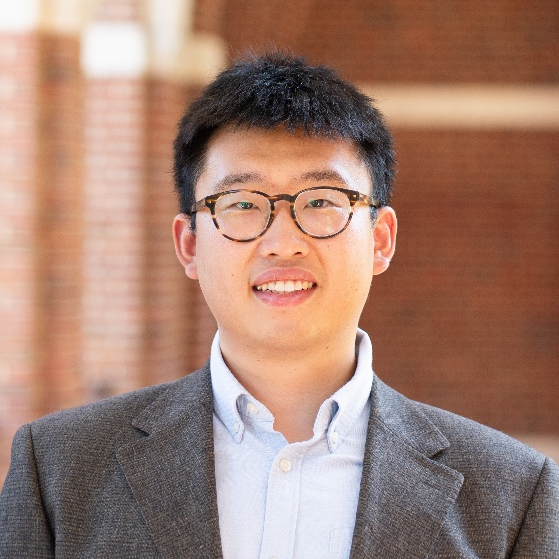
Ziang Xiao, Johns Hopkins University (opens in new tab)
Ziang Xiao is an assistant professor in the Johns Hopkins University’s Department of Computer Science and a member of the Data Science and AI Institute and Hopkins Population Center. His research is motivated by the fundamental question of understanding humans at scale. Through his research, his group aims to understand and create novel technologies to operationalize intuitions and curiosities about how we think and behave. His current research focuses on three topics: AI for social science, human-centered model evaluation, and human information interaction. Broadly, Dr. Xiao’s work lies at the intersection of human computer interaction, natural language processing, and social psychology. He completed his PhD in computer science at the University of Illinois Urbana-Champaign. Before joining Johns Hopkins, Dr. Xiao spent a year in the Fairness, Accountability, Transparency, and Ethics group at Microsoft Research Montreal.

Ziyu Jia, Institute of Automation of Chinese Academy of Sciences (opens in new tab)
Ziyu Jia is an Assistant Professor at the Institute of Automation, Chinese Academy of Sciences. His research focuses on time-series analysis methods and their applications in health and medicine, including multimodal affective computing, sleep stage classification, and brain-computer interfaces. He has published over 50 peer-reviewed papers in venues such as IEEE Transactions on Affective Computing, IEEE Transactions on Multimedia, IEEE Transactions on Neural Systems and Rehabilitation Engineering, KDD, and ICLR. Dr. Jia currently serves as an Associate Editor or Editorial Board Member for prestigious journals including IEEE Transactions on Affective Computing and Information Fusion, and he is an Area Chair for major AI and machine learning conferences such as IJCAI and IJCNN. In addition to his academic contributions, Dr. Jia has extensive industry experience, having successfully led multiple R&D projects and secured several patents.
